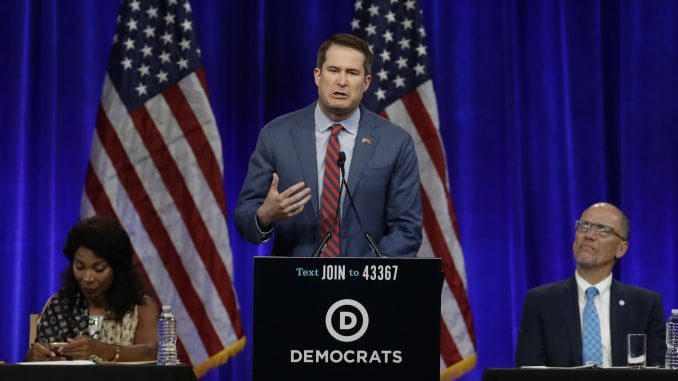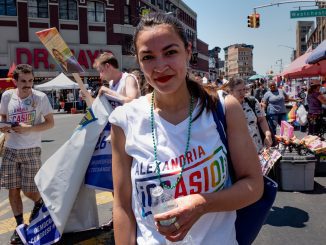
SAN FRANCISCO — The Democratic presidential field is shrinking but not quickly enough to ward off the prospect of a long, bruising fight for the nomination.
Three candidates dropped out of the race over the last two weeks, and several others could soon follow. What remains will be a historically large, double-digit roster that includes an unusually high number of strong campaigns poised to go deep into the primary season plus a gaggle of others doing just enough to survive with less than six months before the Iowa caucuses.
On his way out of the race this week, Washington Gov. Jay Inslee criticized the party for setting a grassroots fundraising goal that he and aides said forced longshot candidates to spend disproportionately on expensive digital fundraising consultants — taking away their ability to spend on travel and grassroots efforts in early states.
Massachusetts Rep. Seth Moulton announced at the DNC gathering Friday that he was ending his bid for the presidency. And former Colorado Gov. John Hickenlooper dropped out of the 2020 race last week.
Some Democratic players even quietly bring up the possibility of going into the national convention in Milwaukee next July without any candidate having secured a majority of delegates required to win the nomination. “I’m the harbinger of doom and gloom who thinks we could have a brokered convention,” said Leah Daughtry, who chaired the 2016 Democratic convention. “People don’t want to talk about that, and I just think, um-hum, OK then.”
Party Chairman Tom Perez takes the optimist’s view, praising “a bumper crop” that will yield a strong nominee tested by a tough primary. He touts the rules he’s set for the primary process, particularly the debates, as ensuring a “fair shake” for all candidates. The chairman, however, also gives nods toward the possibility of fissures like those that cost Hillary Clinton votes on the left and contributed to her loss to Trump in 2016.
“The most important thing for us to remember,” Perez told the party gathering Friday, is “that every single one of these candidates would make a better president than the current occupant of the White House.”
“If we wanted to be the party that excluded people, we’d be Republicans,” presidential candidate Michael Bennet said Friday at the DNC, with Perez sitting nearby. The Colorado senator is unlikely to qualify for the September debates.
As of now, 10 candidates have reached the qualifying thresholds on polling (2% in at least four recognized polls) and grassroots fundraising (130,000 unique donors) for the September debate. If that holds, the September debate would be the first of the cycle held on a single night.
That would put all leading candidates — former Vice President Joe Biden and Sens. Kamala Harris, Elizabeth Warren and Bernie Sanders — on the same stage for the first time, together with a handful of others vying for top tier status, including Sens. Cory Booker and Amy Klobuchar, Mayor Pete Buttigieg and former Rep. Beto O’Rourke.
“The bottom line is you just cannot tell someone they can’t run for president,” says Christine Pelosi, a prominent DNC member and daughter of House Speaker Nancy Pelosi, defending the party’s handling of the race so far.
Another reminder from Pelosi: Republicans had a messy, divisive primary, too, in 2016, and still won the presidency. “We’re Democrats,” she said, “so we know there’ll be drama.”



